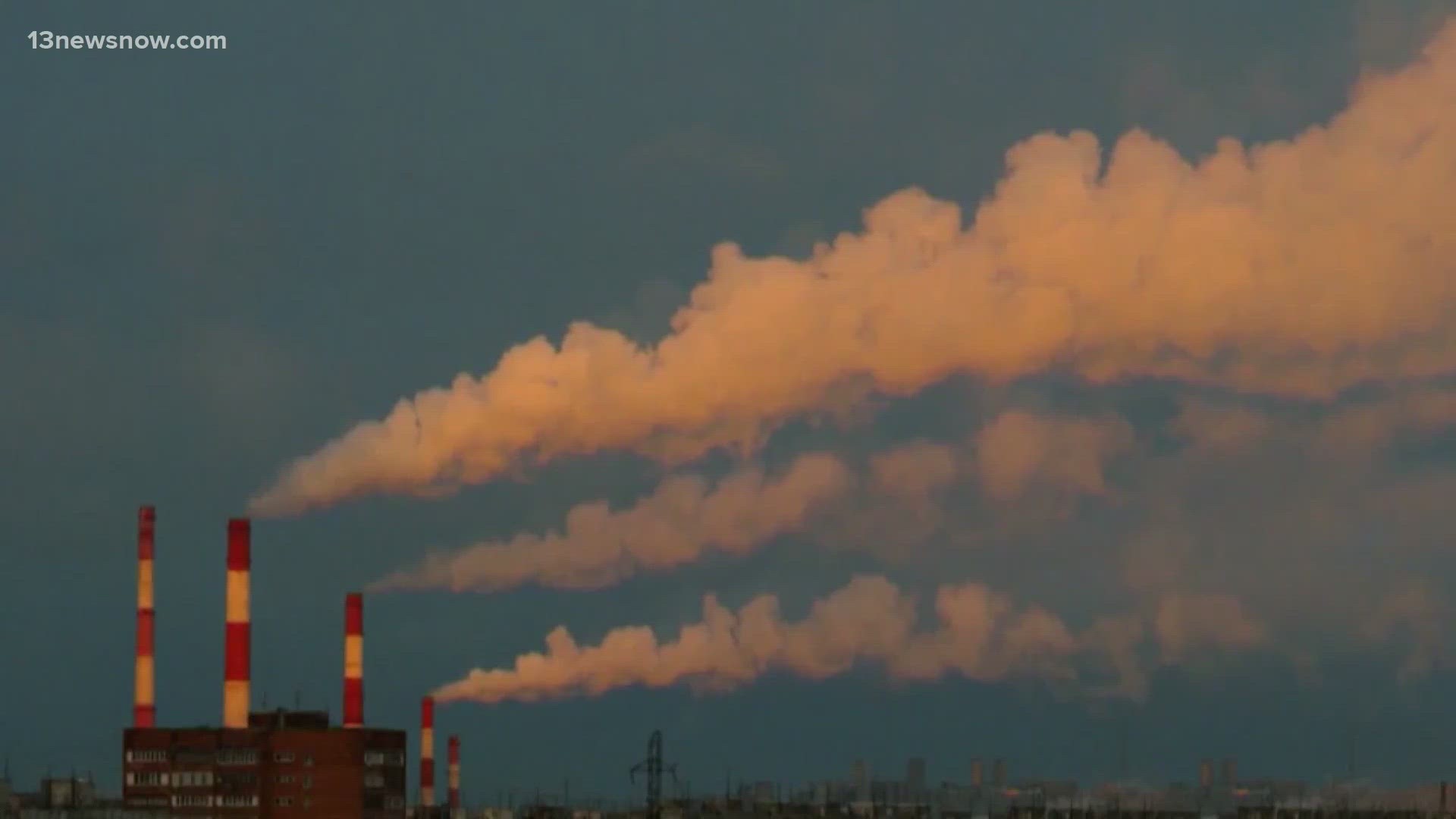NORFOLK, Va. — Wednesday, the Virginia Air Pollution Control Board voted to withdraw the state from the Regional Greenhouse Gas Initiative (RGGI).
It’s a move that has climate activists up in arms.
“It is a really disappointing vote by the air board. The air board's job is to control and reduce pollution. That's exactly what RGGI has been doing in Virginia. Instead, they’re taking away this proven pollution reduction program," said Nate Benforado, a senior attorney at the Southern Environmental Law Center (SELC).
The initiative requires power plants to buy allowances for how much carbon dioxide they emit. Over time, the allowances decline in quantity, with the hope of incentivizing these companies to reduce carbon emissions.
“If we pull out, we’re saying, ‘Hey, we don’t really care about climate change. We are not interested in climate solutions.’ And that’s a real problem," Benforado said.
Virginia joined RGGI in 2020 under then-Gov. Ralph Northam. In September of 2022, Gov. Glenn Youngkin's office submitted a Notice of Intended Regulatory Action (NOIRA) to the Air Pollution Control Board. That was followed by a 30-day public comment period.
“The public overwhelmingly said, ‘We want RGGI,’” Benforado said.
Benforado said in the few years Virginia has been a part of RGGI, power plant emissions have dropped by more than 16%.
But, Gov. Youngkin has been a strong critic of RGGI, praising the air board's decision in a statement Wednesday afternoon.
“Today’s commonsense decision by the Air Board to repeal RGGI protects Virginians from the failed program that is not only a regressive tax on families and businesses across the Commonwealth, but also does nothing to reduce pollution,” Youngkin said in a statement.
Jay Ford, Virginia Policy and Grassroots Advisor to the Chesapeake Bay Foundation, said the move will eliminate critical environmental funding.
“We have a program called the Community Flood Preparedness Fund and this is the only source of flooding and climate resilience funding that the Commonwealth has," he said.
This past December, the City of Norfolk received $24 million in funding to help protect the city from coastal flooding.
“We have got to keep our pedal to the metal when it comes to climate resilience work because this is here now. It’s already impacting communities. We already have people unable to get to work – unable to get to school," Ford said.
Ford said without RGGI, the future of these types of flood prevention projects is unclear.
The move from RGGI isn’t in effect yet, as Gov. Youngkin still has to sign his approval. Then, it will be published in the Virginia Register and, 30 days later, become effective.
Both Benforado and Ford said legal action could follow to try to keep Virginia in RGGI.
"There certainly are legal actions that could pre-empt the withdrawal, and I think we'll see a number of organizations exploring that option," Ford said.
Benforado argued that the air board doesn't have the authority to pull Virginia from the initiative.
"We do not believe this action complies with the law. Virginia joined RGGI after the General Assembly passed a law in 2020 that requires Virginia to participate. So, the air board does not have the authority -- does not have the discretion to pull us out unless and until that law is changed," he said.
But, the Youngkin administration argues that the General Assembly "authorized but did not mandate the air board to adopt regulations which require Virginia’s participation in RGGI. As such, Governor Youngkin signed Executive Order 9 in January 2022 to direct the Department of Environmental Quality to examine the impact of RGGI and start the process of ending Virginia's participation."

